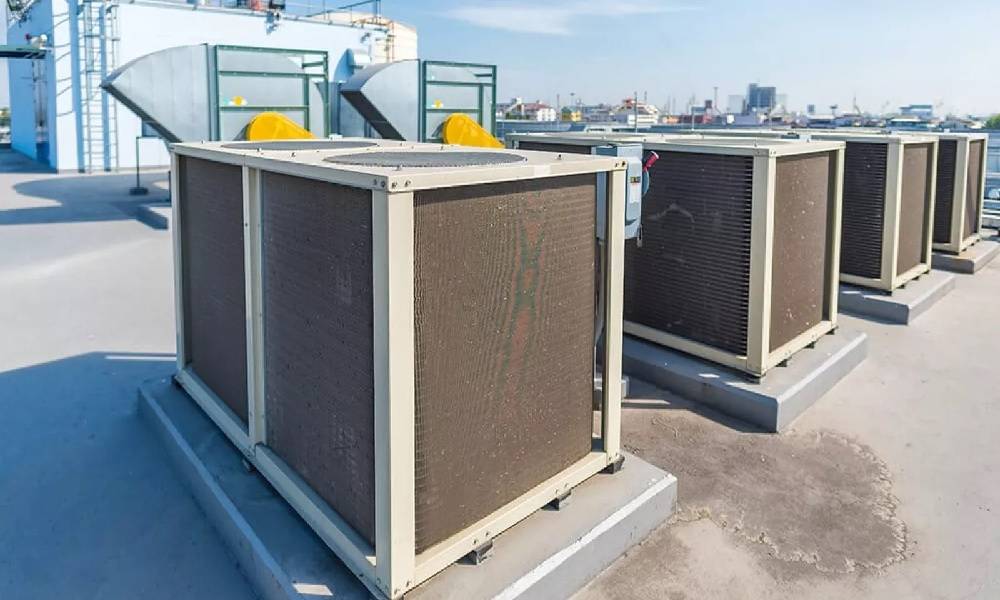How To Choose The Ideal HVAC Sound Barrier For Your Project?

When embarking on a construction or renovation project, it’s essential to consider the impact of HVAC (Heating, Ventilation, and Air Conditioning) systems on noise levels within the building. HVAC units can be noisy, and if not adequately addressed, they can disrupt the peace and comfort of a space. To mitigate this issue, selecting the right HVAC sound barrier is crucial. In this article, we’ll discuss the key factors to consider when choosing the ideal HVAC sound barrier for your project.
Identify Your Noise Source
To choose the best sound barrier for your HVAC system, you must identify the precise sources of noise that are inside of it. A multitude of components, such as fans, compressors, and ducting, among others, can generate noise. Being able to locate the source of the noise will help you focus your efforts more effectively when it comes to soundproofing the relevant locations.
Consider Acoustic Materials
If you want to effectively reduce noise from HVAC systems, you must choose the correct acoustic materials. Materials come in a variety of forms, and each has special qualities for cancelling out sound. Furnaces, mass-loaded vinyl, and acoustic foam are typical choices. Determine which of these materials best meets the requirements of your project by taking into account their acoustic qualities.
Evaluate Barrier Placement
It is essential to position HVAC sound barriers appropriately for the best possible noise reduction. Determine the spots in which noise is the most distracting, and then create barriers in those areas using a systematic approach. When it comes to the walls, ceilings, and floors that surround the HVAC equipment, pay special attention. The positioning of the barriers ought to be by the found noise sources.
Assess Barrier Thickness
The effectiveness of your HVAC sound barrier is significantly influenced by the thickness of the barrier. Generally speaking, thicker barriers provide superior sound insulation. The precise noise levels and space limits of your project will, however, influence the decision of thickness that you go with. To determine the optimum thickness for your HVAC sound barrier, acoustic specialists should be consulted.
Opt For High STC Ratings
Sound Transmission Class (STC) ratings measure a material’s ability to block sound transmission. When choosing an HVAC sound barrier, aim for materials with high STC ratings. Higher STC ratings indicate better soundproofing performance. Be sure to verify the STC rating of the selected materials to ensure they meet your project’s requirements.
Consider Aesthetics And Space Constraints
Your choices for HVAC sound barriers may be constrained in certain projects due to aesthetic considerations and space limitations. It is necessary to find a happy medium between the goals of noise abatement and the overarching design of the area. Investigate potential noise-reduction methods for the barrier that won’t compromise the beauty of the project but will still work well.
Seek Professional Guidance
Selecting the right HVAC sound barrier can be a complex process, especially for large or specialized projects. Seeking guidance from acoustic consultants or engineers can help you make informed decisions. These experts can assess the unique noise challenges of your project and recommend tailored solutions that meet both your acoustic and budgetary requirements.
Conclusion
Maintaining a peaceful and noise-free atmosphere in your facility depends on selecting the appropriate HVAC sound barrier. You may choose wisely and improve the quality of your project by locating sources of noise, choosing suitable acoustic materials, arranging barriers thoughtfully, taking thickness and STC ratings into account, taking into account space and aesthetic constraints, and consulting an expert. It’s important to keep in mind that spending money on efficient HVAC soundproofing enhances comfort and helps your building or remodelling project succeed.








